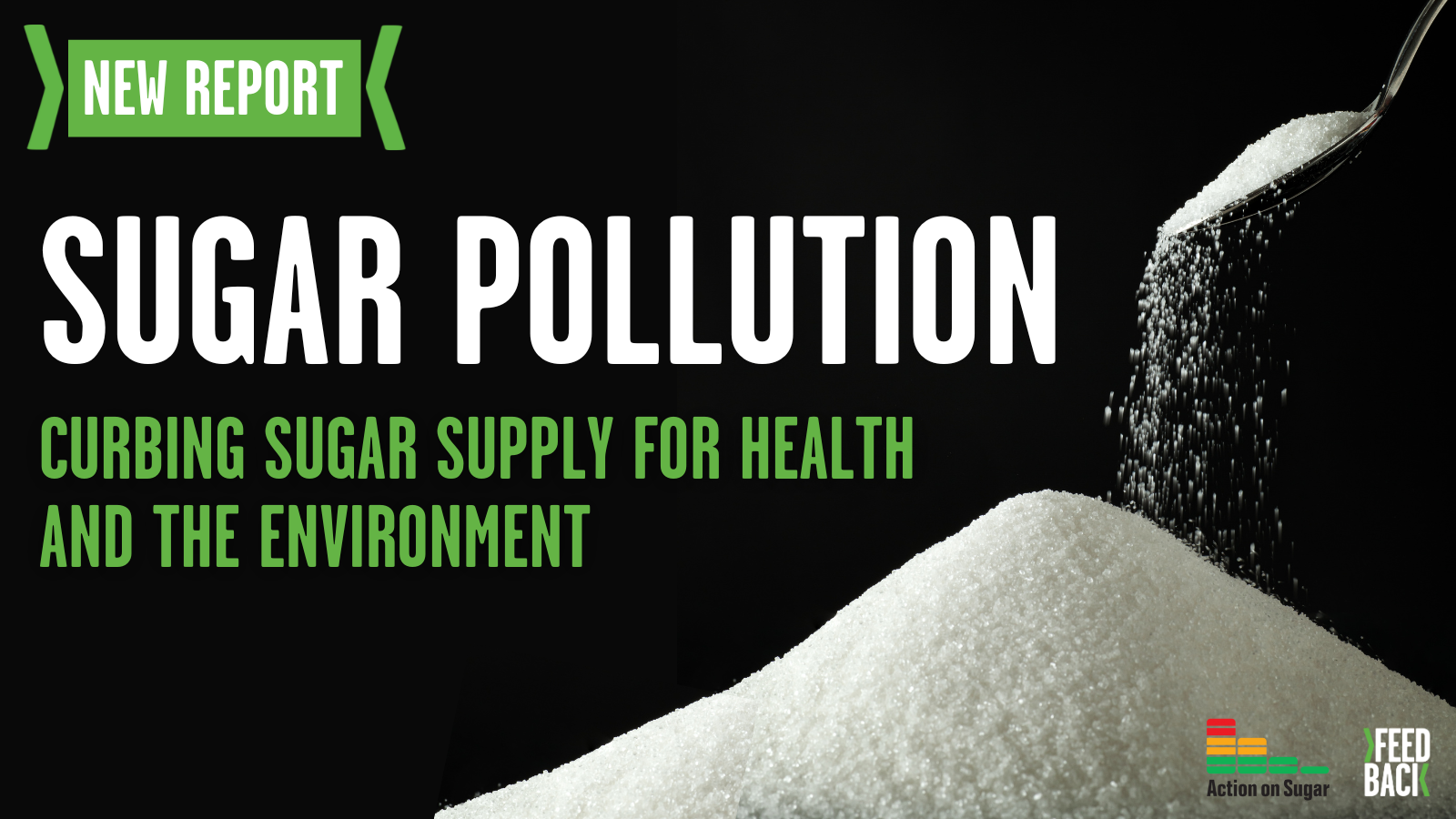Sugar Production and Demand

The UK faces rising ‘sugar pollution’: the impacts on public health and the environment of producing, importing and consuming too much sugar. The UK sugar supply is equivalent to over two-and-a-half times the amount needed to meet the population’s maximum recommended intake, driving tooth decay which hospitalises over 600 children a week, and contributing to levels of obesity that cost the NHS around £6.5 billion a year.
Yet despite this damage, the UK uses around 100k hectares of prime agricultural land to grow sugar beet, providing just over 50% of the UK’s sugar supply. This is wreaking havoc on topsoil and affecting biodiversity through an increasing reliance on neonicotinoid pesticides. Sugar cane has its own problems – requiring large amounts of water and chemicals to produce and needing to be transported over huge distances.
To date, policies on sugar have focused mainly on reducing high sugar consumption while failing to address the oversupply of sugar flooding the market. So far, this strategy has not paid off: the final report from the government’s voluntary reformulation programme found a 7% increase in total sugar sold across all foods included in the programme.
It is time to address supply and demand in an integrated way, freeing up land for the production of nutritious food to address the food security and cost of living crises, and reducing the health burden imposed by an oversupply of sugar.
Read more in Feedback and Action on Sugar’s new Sugar Pollution report:
Sugar Pollution Summary [PDF 225KB]
"With one in 3 children leaving school over a healthy weight and tooth decay still the leading reason children are hospitalised in the UK, there is an urgent need to make everyday foods more nutritious, and that includes reducing sugar. Without decisive action now, the record levels of people unable to work due to long-term health issues will only get worse as the food and drink industry continues to push sales of sugary products. However, reducing sugar consumption will remain an uphill battle until the government tackles sugar at its source, with trade and agricultural policies that seek to reduce, not increase sugar supply, so that manufacturers are incentivised to reduce their use of this harmful commodity." Hattie Burt, Senior Policy and International Projects Officer at Action on Sugar
“Defra and the Department for Business and Trade continue to make active choices to fuel the massive over-supply of sugar to the UK population, both through trade deals and repeatedly granting industry permission to use banned pesticides to grow sugar beet. At the same time the food industry spends millions to maximise demand for sugar and ultra processed foods, and works hard to pedal the false narrative that obesity is an issue of personal motivation instead of massive oversupply. The public want to see stronger leadership on food policies, not policies that work against our health.” Krysia Woroniecka, Campaigner – Sugar at Feedback


